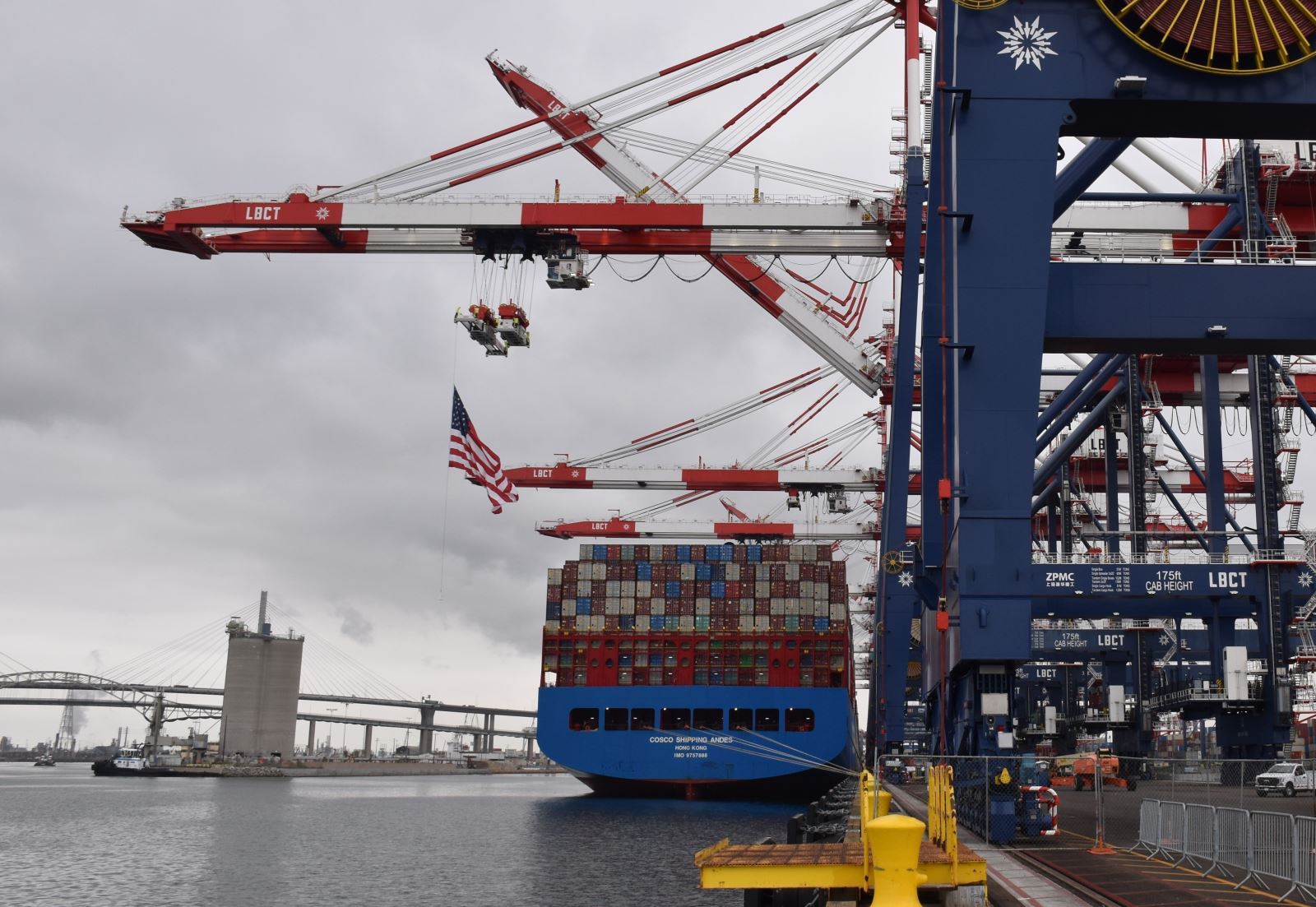
Cargo ship anchored at a port in Los Angeles, California, USA. Photo: THX/TTXVN
According to Politico Europe (Politico.eu), the tension over shipping costs between the US and China is causing unintended consequences, putting European shipping companies at risk of being harmed by both sides. In this situation, European businesses are having to act quickly to limit the risks.
The dispute was sparked by US President Donald Trump, who decided to impose fees on Chinese and Chinese-built ships entering US ports. China immediately retaliated, targeting US-linked ships. Both fees have since gone into effect.
James Lightbourn, head of maritime consultancy Cavalier Shipping, warned: “While the US and China are each other’s main targets in parallel port rate hikes, there will be collateral damage to the global shipping industry – and particularly European fleets.”
Details of the new fees
The US is charging $50 per net ton. China initially charges a similar fee of 400 yuan ($56.22), rising to 1,120 yuan per ton in 2028. Both fees are charged once per service and capped at five times a year.
Lloyd's List estimates that for a 35,000-ton cargo ship calling at a U.S. port, the new fee could be as high as $5.6 million a year. Rates in China could be much higher, as its ports typically handle larger bulk carriers, with capacities of 200,000 tons or more.
On the U.S. side, the impact appears limited. Philip Damas, head of supply chain consulting at maritime consultancy Drewry, estimates that only about 11% of container ships traveling to and from the U.S. will be affected. Lightbourn also notes that in 2024, of the 85,735 international merchant vessel calls to U.S. ports, only 254 will be subject to the toll.
While the US measures have little impact on European companies, China’s retaliation is a different story and could be much more damaging. China’s fees apply to any vessel owned or operated by a company in which Americans hold at least 25% of the equity, voting rights or board seats. The definition is broad enough to make life difficult for many European companies.
“There is no clear measure yet because the ownership structure of most shipping companies is – often intentionally – opaque,” said Lightbourn, pointing out that many European fleets are backed by US investors, including publicly listed companies and those owned by US private equity.
“What China has done is effectively target shareholders,” said a European shipping representative, who spoke on condition of anonymity. “And because a lot of the companies are actually listed on global exchanges, they are likely to have US investors. So while [the two systems] look quite similar, the impact from the Chinese side is likely to be more significant.”
Europe races to limit damage
European companies are taking action with little warning from China’s response. Some have quickly reshuffled their boards to avoid the charges. Greek company Okeanis Eco Tankers, for example, has fired two of its three American directors, while Danaos has also fired a board member. Norwegian operator 2020 Bulkers and tanker owner DHT Holdings have begun auditing their shareholder base.
Mr Lightbourn noted that it was easier for European shipping companies to avoid US charges by diverting Chinese-built vessels to trade routes that bypassed the US. Mr Damas confirmed that container shipping companies had been “busy replacing Chinese-built container ships with Korean and Japanese-built container ships on routes connecting to the US”.
However, shifting towards China is impractical, especially for bulk commodities such as crude oil and iron ore.
“China’s announcement of similar charges on US-linked vessels calling at Chinese ports is clearly a retaliatory tactic,” said Brian Maloney, a partner at law firm Seward & Kissel, adding that it was creating “chaos in the market as the industry tries to understand the scope of China’s countermeasures.”
Although President Trump is threatening to impose additional 100% tariffs on China, he has taken a calming stance, posting on social media: "Don't worry about China, everything will be fine!" Mr. Trump and Chinese President Xi Jinping are expected to meet in South Korea later this month to try to negotiate an end to the trade war.
Mr Lightbourn said the charges could be a bargaining chip and could be quickly scrapped if a deal was reached, but for now, “shipowners around the world are racing to respond to these measures”.
Source: https://baotintuc.vn/the-gioi/thuong-chien-my-trung-lan-sang-phi-van-chuyen-chau-au-chiu-tran-20251018120650056.htm




![[Photo] Closing ceremony of the 18th Congress of Hanoi Party Committee](https://vphoto.vietnam.vn/thumb/1200x675/vietnam/resource/IMAGE/2025/10/17/1760704850107_ndo_br_1-jpg.webp)

![[Photo] General Secretary To Lam attends the 95th Anniversary of the Party Central Office's Traditional Day](https://vphoto.vietnam.vn/thumb/1200x675/vietnam/resource/IMAGE/2025/10/18/1760784671836_a1-bnd-4476-1940-jpg.webp)
![[Photo] Collecting waste, sowing green seeds](https://vphoto.vietnam.vn/thumb/1200x675/vietnam/resource/IMAGE/2025/10/18/1760786475497_ndo_br_1-jpg.webp)
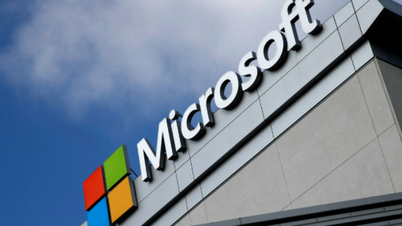

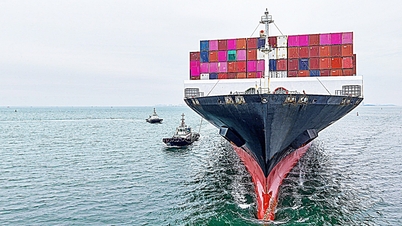
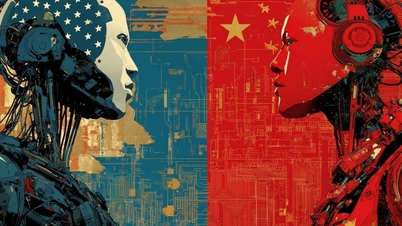

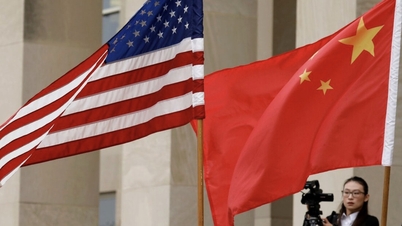

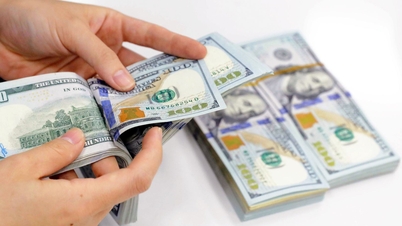













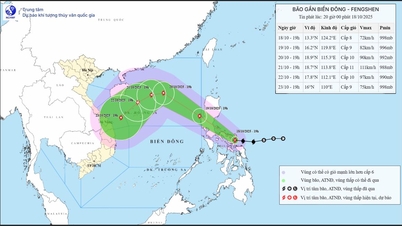



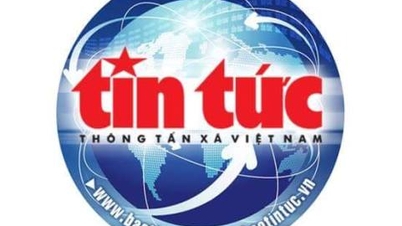



































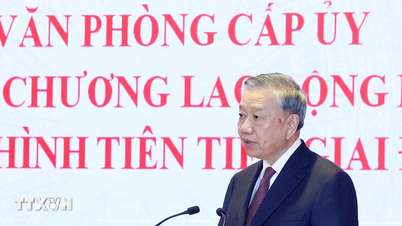


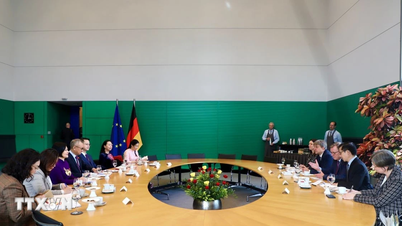

































Comment (0)